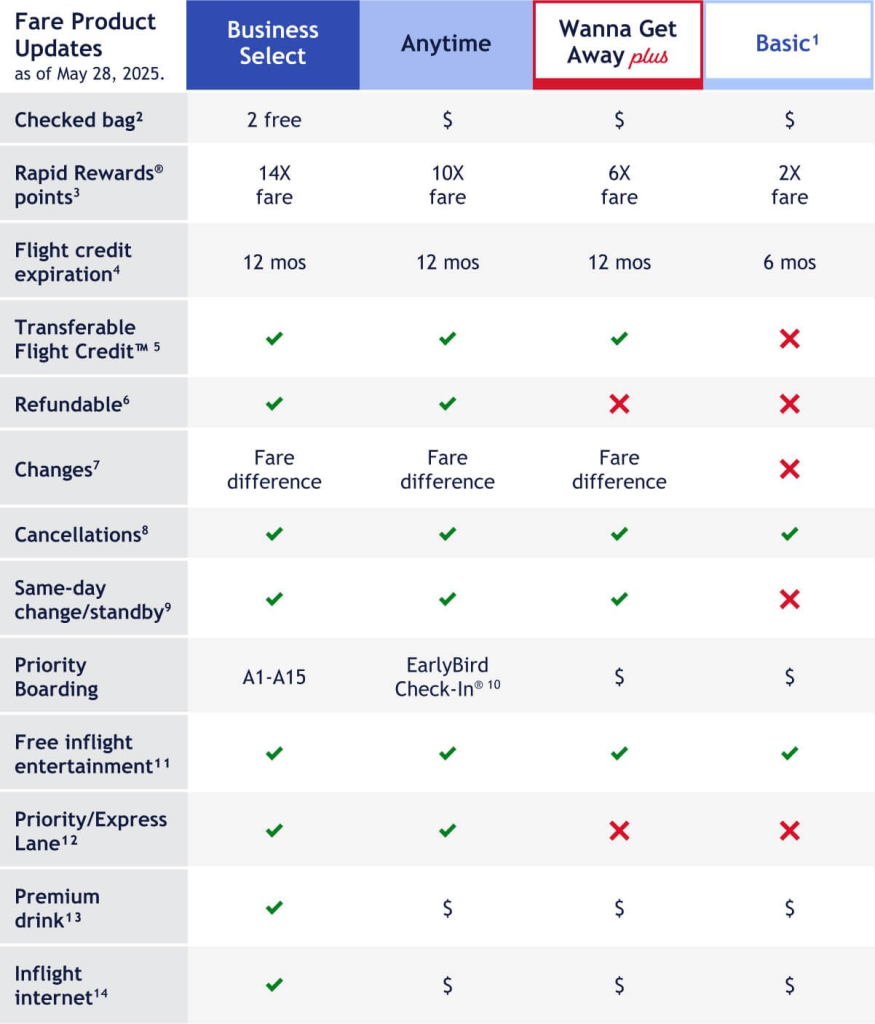Southwest Airlines has ended its longstanding tradition of offering free checked bags. According to multiple sources including CNN, KTVB, Reuters, and CNBC, the new checked baggage policy now requires passengers to pay fees for bags that were once complimentary. This policy change reflects broader industry trends driven by investor pressure, rising costs, and the need to improve operating margins.
What Triggered the Policy Change?
Southwest Airlines’ decision to discontinue free checked bags has not come without controversy. For decades, the airline built a loyal customer base by offering free baggage as a signature benefit, which significantly bolstered its brand image and market share in the competitive airline industry. However, escalating baggage fees and changing economic conditions have forced the company to reconsider its approach.
The move comes amid reports of heightened investor pressure to optimize revenue streams and improve earnings. Analysts note that such policy changes, though initially unpopular among loyal customers, are part of a broader strategy to boost revenue and adapt to a more challenging economic landscape. This shift is similar to trends observed among other major carriers, which have also begun re-evaluating perks that once defined their market positioning.
Adjusting to Premium Fare Expectations
For many loyal customers of Southwest Airlines, the end of free checked bags is a significant adjustment. Those who have long enjoyed the benefit of not having to worry about extra fees, now face an additional cost when booking flights. Critics argue that this change could lead to higher overall travel expenses and potentially diminish customer loyalty. Some passengers fear that the loss of such a popular benefit might drive them to competitors offering more transparent pricing structures.

Despite the potential short-term backlash, Southwest insists that this change will allow the airline to reinvest in other areas of service and maintain its competitive edge. With the new policy in place, passengers can expect a restructuring of fare classes and the introduction of premium fare options that include added amenities—a trend that is becoming increasingly common across the industry.
Financial and Operational Implications
The adjustment in the checked baggage policy is a strategic move by Southwest Airlines aimed at increasing revenue and aligning with market pressures. By charging for what was once a free service, the airline aims to shore up its financial performance and deliver improved operating margins to its shareholders. Reports suggest that this policy change may be a response to the need for more capital in light of rising operational costs.
Furthermore, the new fee structure is expected to contribute to an overall boost in the airline’s profitability, a critical factor as airlines navigate the post-pandemic economic environment. While the transition may be met with initial resistance, industry experts predict that savvy travelers will adapt as they come to expect a more tiered approach to fare options.
The reaction to Southwest’s policy change has been mixed. On one hand, investor pressure and market analysts have largely supported the move, emphasizing the need for airlines to generate additional revenue in a competitive sector. On the other hand, frequent flyers and loyal customers have expressed disappointment, arguing that the airline’s historic value proposition is being compromised.
Well, Bob @Southwest Airlines, since I'm going to have to pay for legroom, and preferred seats, and a checked bag, and probably have to fight through "gatelice" I might as well fly with a carrier with more direct flights and saves me time. Y'all no longer have a differentiator. pic.twitter.com/OVQBg0kciL
— Barry Forrest (@bforrest30) March 11, 2025
Southwest Airlines’ decision to charge for checked baggage marks a significant pivot in its customer service strategy. With baggage fees now in play, the airline is betting that the revenue boost and improved earnings will outweigh the short-term disruption among its customer base. As the policy change takes effect, travelers will need to adjust to the new norm, and the long-term impact on customer loyalty and brand image remains to be seen.
-
Trump says he does not think Ukraine can win war against Russia, but adds ‘anything is possible’
US President Donald Trump said on Monday that he does not think Ukraine can win the war against Russia, but added, “anything is possible”. “They could still win it,” Trump said at the White House on Monday. “I don’t think they will. They could still win it. I never said they would win it …
-
Microsoft Stock Joins Exclusive $4 Trillion Club After Blockbuster Cloud + AI Earnings
Microsoft stock soared after an AI- and cloud-powered earnings beat pushed its market capitalization above $4 trillion, joining Nvidia in an exclusive club.
-
Danville Councilman Set on Fire in His Own Workplace
Danville, Virginia councilman set on fire was Lee Vogler, doused in gasoline and set on fire in his office by a man known to him over a personal dispute.




